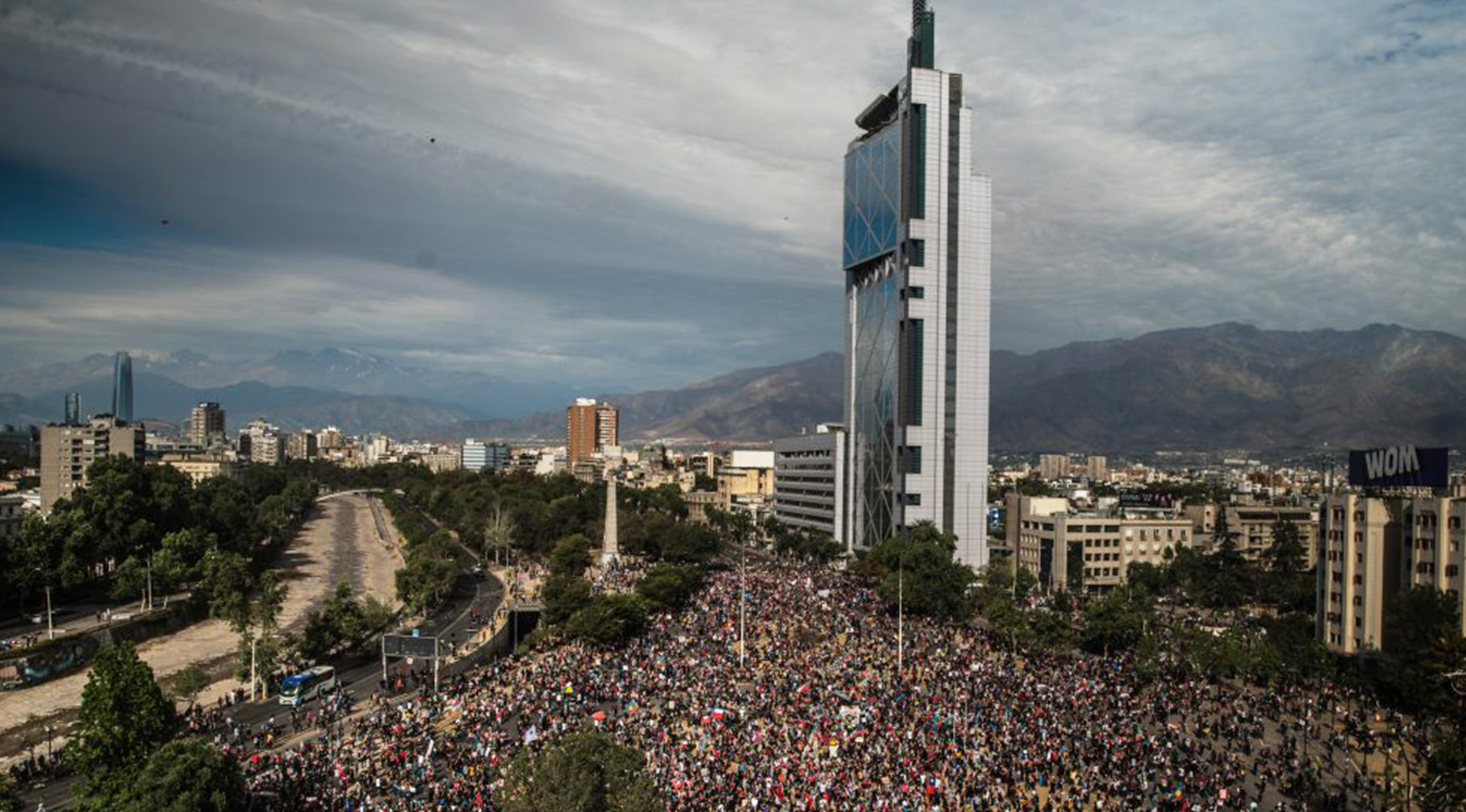The article entitled “From Santiago to Paris, people in the streets” and written by Serge Halimi, was published in January 2020 by the French newspaper Le Monde Diplomatique. The author explains the causes and consequences of the diverse and contemporary waves of protests.
The streets will not stand still. The widespread discontent and resulting demonstrations (Algeria, Lebanon, Ecuador, France, Chile…) have taken a new turn. We have witnessed collective movements that are exigent, united, apolitical and which have had some impact. Governments are increasingly repressive, and yet failing to silent their opponents who want “to bring the down the regime”.
It all started in 2010, after the first Tunisian uprising, which gave birth to the Arab spring. Then followed Spain’s anti-austerity Indignados movement, the Chilean students’ protests and Occupy Wall Street – to name but a few.
To this day and across the world, the slogans differ but the triggering factor is the same: Powerlessness in the face of economic liberalism, which worsens social inequalities; and in the face of a prevailing oligarchy, which does not responds to the needs nor represents the interest of the people. There is a sense of fatigue in living in precariousness, of seeing one’s rights mutilated (pension, education, health) and one’s environment worsen. The state of global environment is a good illustration of this powerlessness. Despite an apparent political goodwill (particularly expressed during the different United Nations Climate Change Conference or “COP”), the richest continue to overconsume despite global warming.
More than 20 years ago, “the death of capitalism, the convergence of struggles and the globalization deadlock” were already announced. However, neoliberal politics have continued to spread. At the heart of the problem is corruption, which manifests itself in different ways. This is witnessed in the financing of private interests by way of destroying the public system through reforms (cutbacks in social programs, rising cost of ”public” services, private funded pension schemes…); it is demonstrated by the incestuous relationship between the State and Capital (an example is the former president of the European Commission José Manuel Barroso, who now works for the Goldman Sachs bank) – links which curtails the power of opponents to the established economic system.
Halimi takes the example of Chile, the cradle of capitalism, as the very proof of its failure. Since last October, a large part of the Chilean population has deplored its political system, which remains neoliberal, despite the fall of Pinochet’s totalitarian regime, and despite democratic transition, which followed: privatisation of pensions and universities, chargeable highways and monetized water. The hardening of the police, judicial and military repression (which has resulted in 11,000 injured, 200 blinded by rubber bullets and 26 deaths since October), has not curbed the rebellion.
These different protests may not have enabled the creation of a serious political alternative to neoliberalism. However, they have resulted in small victories, sufficient to reinforce the protesters’ confidence: Omar Al-Bachir’s regime fall in Sudan, the dismissal of several ministers in Lebanon, in Iraq as well as the former President of Algeria Bouteflika and the constitutional revisions taking place Chile. According to Halimi, these popular protests will certainly have made it possible to “no longer offer liberalism the hope of a return to normal”.


